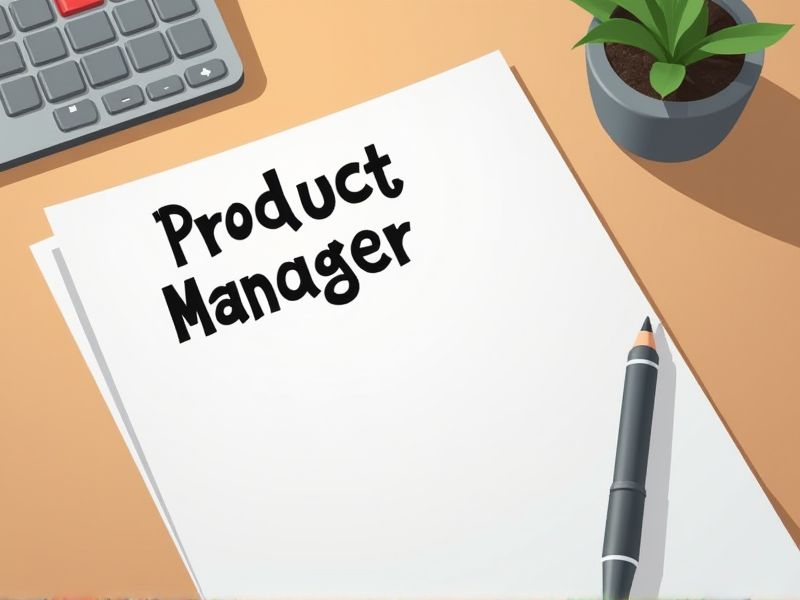
Product Managers play a pivotal role in aligning products with business goals and user needs. Certain certifications provide them with essential frameworks and methodologies that enhance skills in strategic planning, cross-functional leadership, and market analysis. These credentials often validate their proficiency in industry-standard practices, which can substantially improve product lifecycle management and stakeholder collaboration. Some essential certifications for Product Managers include CSPO, AIPMM, and PMI-ACP.
Certified Scrum Product Owner (CSPO)
A Certified Scrum Product Owner (CSPO) equips a Product Manager with an essential understanding of Scrum principles, enhancing their ability to foster teamwork and improve project delivery. This certification provides Product Managers with tools to effectively communicate the product vision, ensuring alignment across development teams and stakeholders. The CSPO training deepens a Product Manager's skills in maintaining a prioritized backlog, which contributes to a more successful product lifecycle management. By holding a CSPO certification, a Product Manager gains validation of their competence in agile methodologies, increasing their value within an organization.
Professional Scrum Product Owner (PSPO)
A Professional Scrum Product Owner (PSPO) brings a structured approach to managing the product backlog, ensuring that it aligns strategically with the company's vision. This alignment facilitates effective prioritization of product features and enhancements based on customer value and market conditions. Their expertise in Scrum practices enhances collaboration between development teams, stakeholders, and product management, fostering a more efficient product delivery process. Through continuous stakeholder engagement, a PSPO enables Product Managers to derive insights that drive informed decision-making.
Certified Product Manager (CPM) - AIPMM
Becoming a Certified Product Manager (CPM) through AIPMM provides product managers with a standardized understanding of core competencies. This certification establishes a recognized set of skills that employers can trust when hiring or promoting product managers. CPM credential holders often exhibit enhanced problem-solving abilities and strategic vision, leading to more effective product development. The certification process helps individuals stay current with industry trends, improving their ability to innovate.
Pragmatic Marketing Certification (PMC)
Pragmatic Marketing Certification enhances a product manager's ability to align products with market needs, increasing the chances of market success. It instills a structured approach to product development, reducing risks associated with poorly researched launches. With a focus on cross-functional collaboration, PMC empowers managers to effectively communicate and align with various departments. It also boosts credibility and marketability, opening up more career opportunities within the competitive field of product management.
SAFe Product Owner/Product Manager (SAFe POPM)
The SAFe Product Owner/Product Manager (SAFe POPM) role is crucial for aligning product development with the broader enterprise objectives, ensuring that the team follows a unified strategic direction. This framework facilitates collaboration and alignment across teams, which is essential for maintaining a consistent and efficient workflow within organizations scaling Agile practices. By prioritizing work backlogs and refining the delivery process, the SAFe POPM helps teams respond swiftly to changes in customer needs and market conditions. The role also emphasizes stakeholder communication, helping bridge the gap between business and technical teams to deliver products that meet both user demands and business goals.
Agile Certified Product Manager (ACPM)
Earning an Agile Certified Product Manager (ACPM) credential often results in enhanced skills for managing agile methodologies, which can improve effectiveness in product development processes. Certification provides a standardized understanding of agile practices, leading to more coherent and aligned cross-functional team efforts. Enhanced expertise in agile can lead to faster product delivery and more adaptive responses to market changes. ACPM certification typically increases credibility, making a product manager more competitive in the job market.
Product Management Certification - Product School
Product Management Certification from Product School equips aspiring product managers with industry-relevant methodologies and frameworks, leading to improved strategic decision-making. Formal certification signals to potential employers a credible commitment to mastering product management skills. Access to a network of experienced instructors and fellow professionals enhances learning through shared insights and real-world examples. Such certification often results in better job prospects and career advancements due to a recognized demonstration of expertise in product management.
PMI Agile Certified Practitioner (PMI-ACP)
The PMI Agile Certified Practitioner (PMI-ACP) credential provides Product Managers with a comprehensive understanding of agile practices, which directly enhances their ability to manage and adapt project scopes in dynamic environments. Obtaining the certification also implies that a Product Manager has validated expertise in agile methodologies, promoting better team collaboration and faster delivery cycles. Demand for agile processes in product development has increased, supporting the need for certified professionals who can implement these methods effectively. Certified Product Managers are better positioned to align development with customer needs, improving customer satisfaction and market positioning.
Project Management Professional (PMP)
The Project Management Professional (PMP) certification equips product managers with structured project management skills, enhancing their ability to deliver projects on time and within budget. Its methodologies help in efficiently managing resources which directly impacts product development cycles and team productivity. PMP fosters improved risk management skills, which is crucial for mitigating potential project setbacks. It enhances communication skills, facilitating clearer and more effective stakeholder engagement throughout the product lifecycle.
Lean Six Sigma Green Belt Certification
Lean Six Sigma Green Belt certification equips product managers with essential skills to streamline processes, reducing waste and enhancing product quality. This certification fosters a data-driven mindset, enabling managers to make informed decisions that improve efficiency and customer satisfaction. Trained in problem-solving techniques, a Green Belt-certified product manager can identify and eliminate bottlenecks in the product development cycle. The certification also signals to employers and team members a commitment to operational excellence and continuous improvement.
Summary
When you obtain certifications as a Product Manager, your credibility in the industry significantly increases. This enhanced credibility can lead to greater trust from stakeholders and improved collaboration with team members. In turn, you are more likely to drive successful product outcomes and career advancement becomes more attainable. The knowledge gained from certifications also equips you with up-to-date strategies and frameworks that can be directly applied to optimize product development processes.
